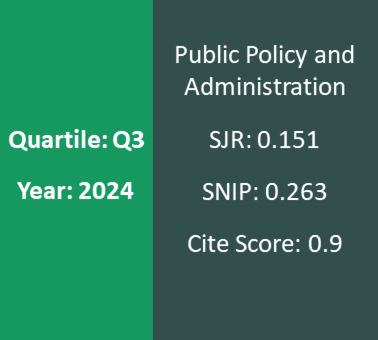The Role of Modelling in Social Science
Keywords:
model, norm, static modelling, dialectic modellingAbstract
The paper presents an overview of M. Weber’s modelling paradigm assessing it against the opportunities of
using the models in modern science of public policy and administration. Two types of research problems requiring
modelling of different levels are identified. The paper defines the static and the dialectic methods of modelling, the
limits and possibilities of their application are defined. The novelty and relevance of the paper lies in the substantiation
of advantages and drawbacks of static modelling and in the proving of the importance of normative character of
science, which contradicts the traditional Weber’s methodology. In public administration one may not rely only
upon formal procedures, forms and rules, because this will not reveal the functions of the State and the interests
underlying them. A public administration model must be characterised by normative content.
Models of social processes must not necessarily reflect the reality exactly, however, they may serve as a tool for
simplifying the mechanisms of social reality and for attempting to understand its mechanisms. Modelling may be
static or dialectic.
Static modelling is simpler since the number of variables it takes account of is smaller. In certain cases static
modelling may be presented or desirable due to value considerations raised by the idealistic world. Idealistic philosophy
gives rise to relevant phenomena, which can be neither confirmed nor rejected. Such models may be desirable
as the given required by a peculiar belief and as components of the given. As far as social science is a value and
“humanitarian“ science, to such extent metaphysics, the static given and static modelling may yield results.





